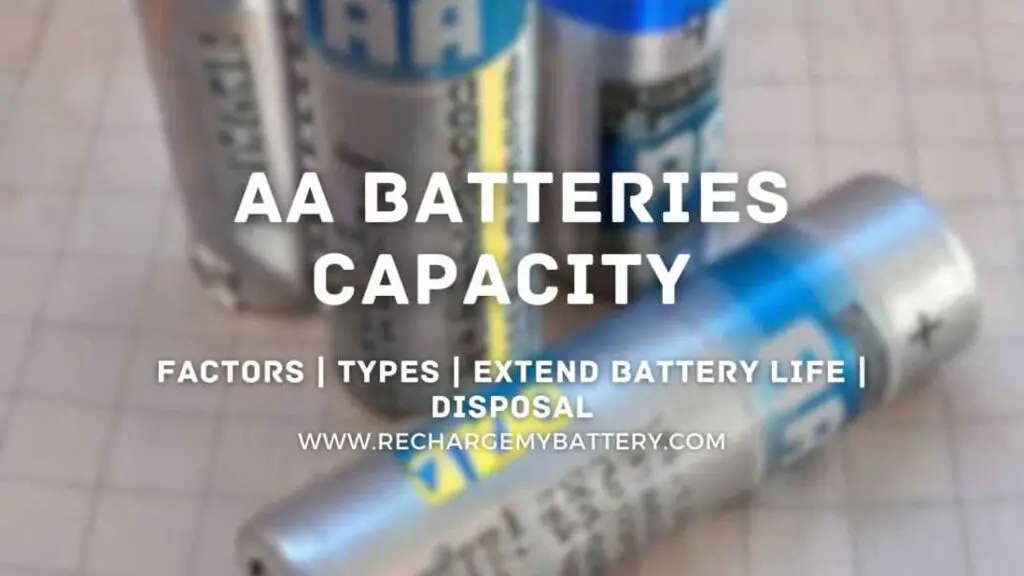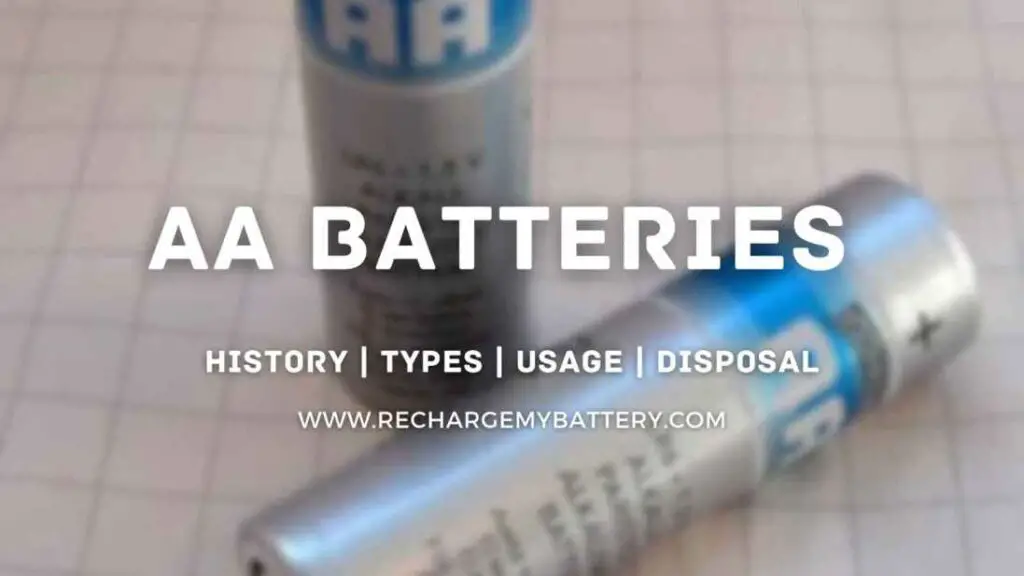In this article, we will provide insights into the world of AA battery capacity, and guide you through the basics of understanding these power sources.
AA batteries have become a part of our daily life, powering a range of devices that we use daily. However, it can be confusing to understand the differences between various types of AA batteries, and how long they can last. So let’s jump right into its detailed discussion.
Introduction of AA Batteries?
AA batteries are an essential part of modern life, powering a vast array of devices that we use every day. From children’s toys to digital cameras, these batteries are vital for keeping our devices running.
Understanding the capacity of AA batteries can help you select:
- The right type of battery for your needs
- Optimize your devices’ performance
- It can even save us money in the long run
What is AA Battery Capacity?
It is the measurement of the electrical energy that can be stored in a battery and the duration for which it can supply power to a device. It is commonly expressed in milliampere-hours (mAh) or ampere-hours (Ah). An AA alkaline battery typically has a nominal capacity of 2850 mAh.
Types of AA Batteries and Their Capacities
There are three main types of AA batteries:
- Alkaline Batteries
- Lithium Batteries
- Nickel-metal hydride (NiMH) Batteries
1. Alkaline Batteries
Alkaline batteries are the most commonly used and affordable, with a typical capacity of around 2000-3000 mAh.
2. Lithium Batteries
Lithium batteries are more expensive but offer advantages such as longer shelf life, higher capacity (around 3000-3500 mAh), and the ability to operate in extreme temperatures.
3. Nickel-metal hydride (NiMH) Batteries
NiMH batteries are rechargeable and can be used multiple times, making them an eco-friendly option with a lower capacity (typically 1300-2800 mAh).
Factors Affecting AA Battery Capacity
Several factors can affect the capacity of AA batteries, including:
- Temperature – High temperatures can reduce battery capacity, while low temperatures can extend battery life.
- Age – As batteries age, their capacity decreases.
- Device usage – Different devices require different amounts of power, and how frequently they are used can affect battery life.
- Storage conditions – Storing batteries in a cool, dry place can help extend their lifespan.
Comparing AA Battery Capacity
When comparing AA battery capacity, it is important to take into account the specific type of battery and the device it will be used in. A higher-capacity battery may not necessarily last longer if the device requires a lot of power.
Additionally, batteries with higher capacities may be more expensive. Therefore, it’s important to choose the appropriate type of AA battery based on the specific needs of the device being used.
5 Steps you should take to Extend AA Battery Life
To extend the life of AA batteries, there are a few steps you can take:
- Devices left on, even when not in use, can still drain battery power. Turning off devices when not in use can help to conserve battery life.
- Instead of guessing when batteries need to be replaced, use a battery tester to determine their remaining capacity. This can help prevent unnecessary replacement of batteries that still have some life left in them.
- If a device won’t be used for an extended period, it’s a good idea to remove the batteries. This prevents batteries from leaking or corroding and extends their lifespan.
- Extreme temperatures can affect battery performance and capacity. Avoid exposing batteries to high temperatures or extreme cold, which can damage or reduce their capacity.
- Storing batteries in a cool, dry place can help extend their lifespan. High temperatures can reduce battery capacity, while low temperatures can extend battery life.
Proper Disposal of AA Batteries
Correct disposal of AA batteries is essential to protect the environment.
These batteries should never be thrown away in the trash. Instead, they should be disposed of at a recycling facility or a designated battery drop-off location.
Many retailers and municipalities offer battery recycling programs to help make proper disposal easier for consumers.
Conclusion
In conclusion, understanding AA battery capacity is crucial when selecting the appropriate battery for your device and maximizing its potential. Factors such as:
- Battery type
- Age
- Usage
These can influence the capacity of AA batteries, so it’s necessary to take these variables into account when comparing batteries. Furthermore, proper disposal of AA batteries is essential to safeguard the environment.
Thank you for reading this article.
FAQs
Q1. How long do AA batteries last?
Q2. Can rechargeable AA batteries be used in all devices?
Rechargeable AA batteries are generally suitable for use in most devices that require AA batteries. However, their performance may vary depending on the device and its power requirements. For example, they may not be suitable for high-drain devices like digital cameras or flashlights, as they may not provide sufficient power for long periods of use.
It’s important to check the manufacturer’s specifications and recommendations before using rechargeable batteries in any device.
Q3. How can I tell when my AA batteries need to be replaced?
Q4. What should I do if my AA batteries leak?
If AA batteries leak, remove them and clean any residue. Use baking soda and water or vinegar to neutralize acid. During the process of handling a battery that is leaking, then don’t forget to wear gloves and eye protection.

